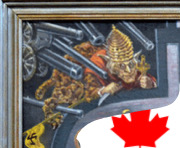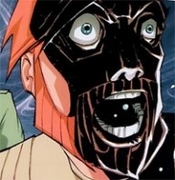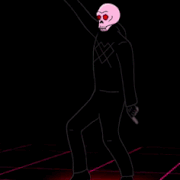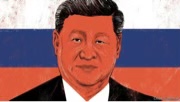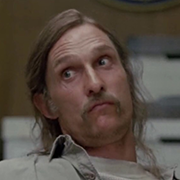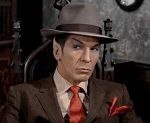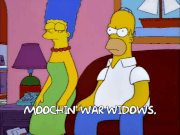|
I knew it was going to be the White Rose before I got to the end of the paragraph. Most of the German resistance was by the KPD, and this has largely gone unpublished for somewhat obvious reasons.
|
|
|
|

|
| # ? May 2, 2024 07:20 |
|
Orange Devil posted:This is just not true. The terror was reserved for the occupied countries, not Germany itself. What on earth are you talking about. The first concentration camps were set up in 1933, obviously for Germans. Say the wrong thing around the wrong person in Germany and you get the Big Knock on your door at 3am and end up in front of these guys. https://en.m.wikipedia.org/wiki/People%27s_Court_(Germany) A bunch of Germans backed the Nazis - that's how this system worked! - but claiming those who didn't weren't terrorised is some bullshit. feedmegin fucked around with this message at 00:46 on Apr 8, 2024 |
|
|
|
I donít know how far into this you want to get, but by and large Germans supported the Nazis until Spring 1945, the Gestapo operating within Germany was tiny, most cases were started by Germans informing on their neighbours, and most sentences (of Germans) were a slap on the wrist. If you were a member of the KPD or swept up in the July Plot, yes, you would be terrorized, but the Nazis conceived of their own political project as a mass movement, done with the support and approval of the German people, not a top down imposition. They craved public support, most Gestapo monitoring was to see where public opinion was at. They did not see Germans, in Germany, as their enemies because they had declared the Jews and Communists werenít German. e: someone brought up the emigration tax already, but the Nazis were very happy to assist dissidents in leaving their country before 1940, because they could take all of their stuff. Obviously later they were brutal to emigres captured in Paris or, God forbid, the USSR, but that hardly represents the median (gentile, noncommunist) German. DJJIB-DJDCT fucked around with this message at 01:00 on Apr 8, 2024 |
|
|
twistedmentat posted:I think they were French soldiers, who, understandably, really did not like the Germans. I rewatched Why We Fight last night and jesus christ what a well edited episode. Maybe its just that I'm in my 30s and not a teenager (like when i first would watch and rewatch BoB) or maybe its because Masters of the Air is so NOT well edited (in comparison) but yeah. There are so many moments that just breathe. Not every interaction between characters is overtly for the plot. And the way Nixon and the fancy lady have these two incredible bookmarked moments without any dialog is just mwah. Having Liebert (sp?) translate and tell the Jews they have to go back in their cages felt a little forced for the emotional moment - like,,, couldn't Winters have found anybody else to translate? And if he was the only one in the company/present that could speak German,,, that feels like an oversight considering they are now in Germany. Regardless, a beautiful episode, a fantastic simple flashforward framing device and some tremendous acting by Ron Livingston Nixon vat 69 guy
|
|
|
|
|
They were French. Theyíre wearing greatcoats with Adrian helmets iirc.
|
|
|
|
DJJIB-DJDCT posted:I donít know how far into this you want to get, but by and large Germans supported the Nazis until Spring 1945, the Gestapo operating within Germany was tiny, most cases were started by Germans informing on their neighbours, and most sentences (of Germans) were a slap on the wrist. Being part of the SPD (you know the mainstream leftwing party, millions of voters) before 1933 wasn't good for your health either. You are writing off a hell of a lot of people with that 'most Germans were just fine with the Nazis' there. You don't need more than say 20% of the population to be willing to inform and if everyone else keeps their head down because they don't want to be dragged off to a concentration camp, that is terror. NB BTW I am not disagreeing that a bunch of Germans supported the Nazis and a bunch more were happy enough to go along as long as the Nazis were winning. I just object to the idea of the German Volk as a whole/vast majority being happily and willingly Nazi supporters. That, ironically, is exactly the line Nazi propaganda pushed. feedmegin fucked around with this message at 01:37 on Apr 8, 2024 |
|
|
|
DJJIB-DJDCT posted:e: someone brought up the emigration tax already, but the Nazis were very happy to assist dissidents in leaving their country before 1940, because they could take all of their stuff. Obviously later they were brutal to emigres captured in Paris or, God forbid, the USSR, but that hardly represents the median (gentile, noncommunist) German. That someone was in fact me.
|
|
|
|
Lampsacus posted:Having Liebert (sp?) translate and tell the Jews they have to go back in their cages felt a little forced for the emotional moment - like,,, couldn't Winters have found anybody else to translate? And if he was the only one in the company/present that could speak German,,, that feels like an oversight considering they are now in Germany. Regardless, a beautiful episode, a fantastic simple flashforward framing device and some tremendous acting by Ron Livingston Nixon vat 69 guy At least in the context of the show (not sure how many spoke it in real life), only two members of Easy were fluent in German: Liebgott and Webster, and Webster was currently off threatening the shopkeeper while they confiscated the food.
|
|
|
Arc Hammer posted:At least in the context of the show (not sure how many spoke it in real life), only two members of Easy were fluent in German: Liebgott and Webster, and Webster was currently off threatening the shopkeeper while they confiscated the food.
|
|
|
|
|
Lampsacus posted:There is this great moment in the German town street set piece where Webster is in the background milling around and he enters centre stage for about two seconds practically mugging the camera. Speaking of which, this episode really reminded me how much they utilized the ensemble cast in the background of scenes. You have the shortest glimpses of characters and its great. Beyond having watched BoB dozens of times it's still amazing how many names and faces I remember and little bits they do here and there. And not just because guys like Stephen Graham or Simon Pegg or Tom Hardy have bit parts. I remember guys like Tipper, whose sole contribution to the show is laughing at Sobel getting tricked by Luz and then surviving an exploding storefront at Carentan. Or Floyd getting stabbed by accident one episode, playing with a dog another ep and demoting himself from First Sergeant in the last ep. Everyone who gets named has at least one or two little moments that you remember, and then they only go up from there. How many people do I remember from Masters of the Air? I remember Elvis, rear end in a top hat Buck, Bing Crosby, Barry Keoghan, Rosie and Subaltern Spy Lady. Five characters that I can recall with their names.
|
|
|
|
I need to rewatch Generation Kill. That show did not get nearly enough love for how good it is.
|
|
|
|
|
I'd definitely read Jerusalem's write ups of the series
|
|
|
|
There is a channel on youtube that I can't remember but they have a few videos with the actors from BoB talking about their role. Basically everyone on the show who was playing a real person got a folder with as much information about that person as possible. If that person was still alive and was amenable to it, they went to talk to that person. If the person was dead, they talked to someone that knew the person to find out what they were like. So there weren't really background characters, there was an actor that was playing someone from Easy company, and if that person was at an event, they are in the scene somewhere even if they don't say anything. I think that really does a lot. BoB was made at the right time in history when they could really do it right, and while the original people were still alive so the actors could meet them and learn about them.
|
|
|
|
Private Smith, so very weary Cracked an eye, all red and bleary Grabbed his rifle and did not tarry Hearing Floyd, but seeing Jerry
|
|
|
|
feedmegin posted:What on earth are you talking about. The first concentration camps were set up in 1933, obviously for Germans. Say the wrong thing around the wrong person in Germany and you get the Big Knock on your door at 3am and end https://en.wikipedia.org/wiki/Rosenstrasse_protest The German public only mass protested against the Nazis once. And as a result, the Nazis met all their demands, specifically saving a specific group of Jews from extermination, and nobody was terrorized. Very curious. Almost as if "the German public" and "the Nazis" had a hell of a lot of overlap.
|
|
|
|
I recently (well, like 2 years ago) read the crazy long Rise and Fall of the Third Reich by William Shirer (the audiobook, which is an insane 50ish hours long if I remember right) and while there is A LOT to take in, one of the things I remembered most vividly from going through it is just how much that big German business was TOTALLY loving cool with the Nazi party and supported them. As for the German people at large, when I was younger I gave them more of a benefit of the doubt- they were subjects of an evil regime and had also been through some wild poo poo post-WW1, so maybe they were kind of just victims versus a majority playing an active part. As I've gotten older and (sadly) seen a rise in nationalism/extremism and see how easy it is for various groups of people to be vilified and just how many people are actually totally cool with it....I'd assume a good portion of the population either agreed with the Nazi way of doing things or at the very least didn't necessarily disagree with a lot it. As long as it was happening to "those people" (whatever group a person may of disliked, for whatever reason), it was probably ok. As someone who has always been fascinated with the interwar time period and done a good bit of reading/studying on it in regards to how the world went kinda batshit crazy, it's pretty scary seeing a lot of political rhetoric going on today that harkens back to it.
|
|
|
ColonelJohnMatrix posted:I recently (well, like 2 years ago) read the crazy long Rise and Fall of the Third Reich by William Shirer (the audiobook, which is an insane 50ish hours long if I remember right) and while there is A LOT to take in, one of the things I remembered most vividly from going through it is just how much that big German business was TOTALLY loving cool with the Nazi party and supported them. I've been reading the archives of the Atlantic from 1930 and the parallels are scary. Also op-eds were just as hilariously wrong in their predictions back then too.
|
|
|
|
|
ColonelJohnMatrix posted:I recently (well, like 2 years ago) read the crazy long Rise and Fall of the Third Reich by William Shirer (the audiobook, which is an insane 50ish hours long if I remember right) and while there is A LOT to take in, one of the things I remembered most vividly from going through it is just how much that big German business was TOTALLY loving cool with the Nazi party and supported them. quote:The interviewees had the following occupations: baking, cabinetmaking, clerking at a bank, collecting of bills, police, sales, studying, tailoring, and teaching. Walter L. Dorn of the Saturday Review wrote that the interviewees were from a pro-Nazi bloc that was the "anti-labor, anti-capitalist, and anti-democratic lower middle class".[2] The tailor had served a prison sentence for setting a synagogue on fire, but the others were never found to have actively attacked Jewish people.[2] Mayer read the official case files of each interviewee.[5] What I took away from all is that yeah most of them were complicit, but it's hardly unique to the Germans and as we've seen since countless times since then, pretty much anyone is capable of of doing or letting poo poo like that happen. E: D-Pad posted:I need to rewatch Generation Kill. That show did not get nearly enough love for how good it is. It's awesome. Way better and more enjoyable to watch than this. A big part of that is likeable (mostly) characters that you get to follow the entire time imo. mobby_6kl fucked around with this message at 00:40 on Apr 9, 2024 |
|
|
|
Curiously the communists, including in Germany, were very much not capable of doing or letting poo poo like that happen.
|
|
|
|
They very much were though
|
|
|
|
Orange Devil posted:Curiously the communists, including in Germany, were very much not capable of doing or letting poo poo like that happen. I was under the impression that soviet russia post wwii was incredibly anti semetic, though I'm happy to be corrected on that Or is this just like a tankie joke communists are never bad guys kind of thing
|
|
|
|
ilmucche posted:I was under the impression that soviet russia post wwii was incredibly anti semetic, though I'm happy to be corrected on that Stalin had almost all the doctors purged because he was worried that they were part of a jewish plot against him. Though this was not long before he died, so most were only tortured, not killed. Plus he used Antisemitism to attack Trotsky. Khrushchev didn't do anything noticable, but Brezhnev brought it back. Though I think he denounced it later on? Though I think the Soviet government was pretty bad to any religion because it meant people were putting something above the Party.
|
|
|
|
the soviets were antisemitic because they supported palestine and remembered soviet dead as soviet citizens first.
|
|
|
|
Man, the pacific is so good. How did people look at rami malek after the show came out because he is effortlessly charming even when being a maniac.
|
|
|
|
Tankbuster posted:Man, the pacific is so good. How did people look at rami malek after the show came out because he is effortlessly charming even when being a maniac. Someone thought "What if we made him look like a reconstructed corpse of Freddie Mercury."
|
|
|
|
Points wraps up Band of Brothers strongly, hitting hard emotionally in a very different way to Why We Fight as we finally get to see the survivors of the fresh-faced kids who ran up Curahee at Sobel's command 10 episodes and two years earlier reach the end of the war. It is mostly a victory lap, both for the men of Easy as well as the series as a whole, but not without tragedy, misfortune and drama of course, just as it was for the men who made it. Hitler's death saw one of his final commands issued for the SS to fall into guerrilla warfare tactics... and like many of his insane plans, this one ends up going nowhere and achieving nothing but killing his own people. The episode opens not with high action and street-to-street fighting or ambushes from crack troops of dedicated Nazis... but Major Winters spending his mornings swimming in a beautiful river, joined by a crumpled looking Nixon, and their conversation isn't about troop movements or battles, but reflecting back on an album Winters picked up from the regimental photographer of their time at Toccoa, with Winters admitting he's considering staying in the army as a career with Sink's encouragement. Yes, thoughts are very much of nostalgia for a time that has past, and thoughts about the future. It's not just Winters either, with Nixon admitting that he's thinking about his own future... and Winters'. His parents run the aptly named Nixon Nitration Works in New Jersey, and he would like Winters to come and work with him, clearly not wanting their time together to end after 3 years in his company. Winters, despite his own clear interest in Sink's suggestion, is open to the idea as well, because right now the future is full of unknown promise, and against all odds both have survived and have to consider what comes next. The reason for this is shown in a brief dip back in time to Easy's arrival at Berchtesgaden. The roads have been blocked by rockslides caused by explosions, but there have been no attacks from the higher ground from the expected SS Troops... in fact, soldiers are casually lying about in jeeps waiting for the Army Engineers to arrive, while some of the men fool about with bazooka and grenades trying to see if they can blow a big enough hole to shake the rocks loose. Sink gives Winters the go-ahead to push forward rather than waiting, despite General of the French Army LeClerc wanting to be first, and when they arrive in the town they find not an entrenched enemy waiting to fight to the death, but deserted streets and white sheets/flags everywhere to mark their surrender. There aren't any civilians present to cheer on or even stare or be shocked by the arrival of American troops, other than a couple of terrified hotel workers who immediately tear rear end out of there the moment they see the troops (one tries to snatch the guest register but is stopped before that proof can be lost forever), as well as a few suicide victims. Because despite the fact every town and village they've come across so far has been full of Germans insisting they weren't Nazis, they CAN'T claim that in Berchtesgaden - to live in this town, you MUST be a member of the Nazi Party, you must be an insider/one of the favored few. You can't claim ignorance or innocence here. So it is that Easy Company bursts into the Eagle's Next, Hitler's favorite residence, a gift from his sycophants, and finds not slavishly devoted cult-members but pure luxury at their disposal and plenty of looting. One soldier - Alton Moore - discovers Hitler's photo album before it mysteriously "disappears" despite his insistence he didn't take it (before grinning in delight as he leaves a chewing out later in the episode, because of loving course he stole it!), and the only thing that can make sitting in Hitler's own house drinking his booze as conquerors better for Easy is when Major Winters walks in and gives them the latest bit of news: The German Army has surrendered. The War is over. But that's kind of the problem, after the immediate shocked relief, disbelief and joy. Because the war is over... in Europe. Japan still fights on, in brutal battles of attrition on islands where every step taken is earned in blood and pain. For Easy, after the initial excitement comes the realization that for those of them without the "points", they'll soon be shipped out to the Pacific to fight against an enemy that their own propaganda has successfully painted as inhuman monsters. They've spent a year in Europe, they've faced all kinds of horrors there but it's also been a place they understood from Normandy onwards. The Pacific is going to be something new, they'll be starting all over again, having to adapt tactics and habits that have been drilled into them for fighting in a very different environment. The enthusiasm doesn't immediately disappear, of course, spirits are still high and everybody still feels unified in the sense of doing what they can for the man next to them. Everybody is fine with rigging a lottery that allows Shifty Powers to go home early, though that story doesn't end as happily as hoped, as after a heartfelt goodbye to Winters and his departure, the truck taking him to the boat that would return him to the US was hit by a drunken Corporal and he'd spend months in rehab, getting back home long after everybody else (and having most of his stuff stolen in the meantime). Winters, feeling the urge to keep moving forward, requests a transfer so that he can go immediately to the Pacific and get stuck in. Nixon surprises Harry Welsh by telling him he's made the same request, saying he can't let Winters go alone. It's clear both would like him to come with them, but not enough to outright ask him not to return home despite having the points, as he's made it clear from Normandy on that he wants to get back to his fiance Kitty as soon as he can. It ends up a moot point anyway, as a scene where Winters is interviewed about his requests sees it denied. It's a slightly odd scene, as it's hard to tell (for me anyway) if the officer interviewing him is being somewhat accusatory at points about Winters intentions or if he's genuine in his talking up his achievements and the necessity of keeping him and the men under his command connected. The scene is punctuated by some key flashbacks to major moments in Winters' campaign, which also makes explicit a revelation we might not have noticed otherwise: in the battle at the crossroads he opened by shooting the young Geman soldier, he fired the last shots of his war there. Part of that was of course his promotion taking him out of active engagements (he certainly wanted to at Foy), but he made it all the way through Bastogne without once having to shoot at or kill anybody. At the end of the episode, he mentions returning to the army in 1950 to train officers for the war in Korea, but chose not to return to active service himself: he'd had enough of war. The end of the war in Europe didn't end the death on either "side". Liebgott "interrogates" and shoots a farmer he has been told (in real life by Speirs) was a Concentration Camp Commandant, but when the injured farmer makes a break for it Webster refuses Liebgott's demand he shoot him (Liebgott's gun jammed, and in real life Webster wasn't there) and Wayne Sisk shoots and kills the man instead. Liebgott insists that the man running made him a coward, but Webster's retort (remember he pulled a gun on the baker last episode) is that the war is over: everybody would run, the death is supposed to be over. The death isn't over though, Webster commiserates with Janovec (Tom Hardy) over each not having the points to go home. For Janovec he's only 10 points short, while Webster is a frustrating 4 points away from being able to go home. Janovec doesn't make it though, relieved by Webster from his duty where he's been shooting the poo poo with a German soldier also manning a checkpoint, his jeep is run off the road by passing trucks that don't even stop, and he dies in Europe even after the war there ended, pointlessly and unexpectedly: how do you write home like Nixon and Winters have had to do so many times and say,"Your son died a hero" when he died in such a... normal... way. A drunken soldier from I Company shoots a (surrendered) German officer and then a British Major who intervenes in the scene, and when approached by Sergeant Grant shoots him too before taking off in the British Major's jeep. The men track him down and beat him severely, but even they seem concerned when Speirs shows up to the scene, remembering all the stories of his willingness to kill prisoners or even his own men for infractions. Speirs pistol whips the drunken soldier and seems prepared to shoot him, but to the surprise of most actually decides not to. He mentions that Grant will live (he drove to a nearby village and hauled a German brain surgeon out of his home to treat him), and it may be that even Speirs - whose mindset of "we're all dead" seems to have faded with the arrival in Germany - has had enough. The real life Speirs of course would unapologetically claim that he would have had no issue killing the man if he knew for a fact he was the one who shot Grant. The man himself went on trial and was released, though the paperwork with the precise details of why were either not retained or destroyed in an accidental fire. Bored, drunk, too much time on their hands, nothing to do but drill and train and wait to learn when they'd have to go back into the threshing machinery of war. The men get by as they always have, these little tragedies standing out all the more because they are no longer part and parcel of the everyday expected dangers of being alive when the war was active. The men find what amusements they can, even Winters unable to resist (quite correctly) insisting that a passing Captain Sobel salute him when they pass by chance and Sobel tries to pretend he didn't see him. "We salute the rank, not the man," Winters reminds him, a lesson that Sobel would have been only too keen to teach back in their Toccoa days (remember Sobel's offended demand that Winters stand at attention when addressing him during their meeting about his court martial?). Throughout the show, across all episodes, a common refrain has been that the men have grown bonds together through their shared sacrifices and experiences. As they got closer to Germany, it's been shown how once they finally saw the real people behind the propaganda, many of them realized how close to each other the German and American troops were (and arguably even earlier, remember Malarkey meeting a soldier from the German army who was literally from his hometown?). This perhaps is made clearest in a scene where a German General surrenders on behalf of his men. At first he is shown to be somewhat elitist, refusing to surrender to a Private. When he sees Major Winters he is pleased, but Winters makes a point of having him surrender directly to Lipton, a Second Lieutenant. But when the General asks to address his troops one last time, Liebgott provides translation and even he - who has better reason than most to hate the German soldiers - is taken by the clear parallels between the experiences of the German troops and those of Easy Company. These are words that Winters might never say out loud himself but clearly thought and would demonstrate in his actions. The General thanks the troops, many in tears as they surrender to a foreign power in their own country, speaking of how proudly and bravely they fought for their country, of the bond that is only found through combat among brothers. He doesn't speak of glory, but of pain. Of huddling together in foxoles. Of holding each other in their fright. Of seeing death and suffering. Mostly importantly, not so much that he is proud of them, but that he hopes the peace will bring them long and happy lives. https://www.youtube.com/watch?v=VcMk85ZsBh0 This stands in contrast to another surrender seen earlier in the episode, when a German Colonel tried to make the comparison directly to Winters and to appeal to his sense that they were both soldiers. While Winters does the time-honored tradition of not accepting his defeated foe's offered weapon (in real life, Winters did take it, though from the mindset that it was a clean way for him to mark the end of his own war), I personally find this scene offers up an officer who is concerned more about trying to retain what he can of his own personal dignity even as he does his duty for his men. Not that there is anything wrong with that, it's a major psychological blow to have been defeated and to submit, after all. But the General being more concerned with wanting his men to know that they can hold onto the bonds and pride they felt together despite their defeat feels like a somewhat more selfless approach. Maybe I'm being unfair!?! https://www.youtube.com/watch?v=IU8Fv4W-RII In the final scene of the show's narrative, the men enjoy some downtime during their long wait for the Pacific playing a game of baseball. Winters offers up a narration of what happened to each of the men after the war, including a returning Buck Compton. Some of the details are wrong, as again the series was based on Ambrose's book which in turn was based heavily on the stories, perceptions and beliefs of the surviving men of Easy Company. But the point still stands, each of these men were in their own way entirely ordinary, but they all did extraordinary things. Each of them left behind their homes and families, traveled halfway across the world, and fought their way across multiple countries they had only ever heard of, fighting an extraordinarily powerful enemy and beating them back to their own country (as the Soviets were doing to the Germans from the Eastern side of Europe)... and then they went home and lived the rest of their lives. Winters informed the men of the end of the war in Europe. He gathers them up at the ballgame to give them the latest news... the Empire of Japan has surrendered. The war is over. Really over. Really, really, really over. There are no more holdouts, no new fronts, no new enemy. They can go home, points or no. https://www.youtube.com/watch?v=1G21pl7Z1NU So ends Band of Brothers, 10 episodes of an incredible television series that doesn't just hold up 23 years later, but continues to excel. It blows Masters of the Air out of the water, and that's not just nostalgia and memory talking. That's (partly) why I decided to rewatch it, to see if it was really as good as I remember, and it absolutely is. I'll end this in the best way possible, as the show did. For every episode, we saw interviews with old men we understood to be the still living survivors of Easy Company. Only now in the final episode in the final sequence do we see their names. The last to speak, fittingly, is Dick Winters, who quotes from a letter exchange with Myron "Mike" Ranney about a question Ranney's grandson asked him about the war. https://www.youtube.com/watch?v=V6TrbOexkUc Jerusalem fucked around with this message at 04:38 on Apr 12, 2024 |
|
|
|
I rewatch Band of Brothers every couple of years, and in the final scene when Winters quotes Grandpa about being a hero in the war, I choke up every time. Hell, I choked up a little bit just typing this. I will always maintain that the interviews with the real soldiers are what really makes Band of Brothers an unrivaled piece of art.
|
|
|
|
Nixon and Winters being best buds is one of my favorite parts of the series. Nixon being this alcoholic rich college kid, Winters being a sober clean living salt of the earth kind of guy form this amazing friendship. It helps that Damien Lewis and Ron Livingston play off each other really well, sell this friendship.
|
|
|
|
The Pacific did a similar thing with veterans but they were split off from the episodes proper and aired as behind the scenes extras on HBO and the physical release. It would have definitely helped The Pacific contextualize things a bit better if they were integrated into the cold opens for episodes, but I'm glad they exist all the same in one form.
|
|
|
|
I don't think I have the military knowledge to understand the Sobel/Winters storyline. Sobel hates Winters for some reason, enough to want him to get court marshaled when his men protest they get punished while Sobel is shuffled off to another position, and during the end where Winters is the superior officer, Sobel gets a gentle chiding for not saluting him instead of being sent to prison or whatever punishment is normal.
|
|
|
|
Oasx posted:I don't think I have the military knowledge to understand the Sobel/Winters storyline. Sobel hates Winters for some reason, enough to want him to get court marshaled when his men protest they get punished while Sobel is shuffled off to another position, and during the end where Winters is the superior officer, Sobel gets a gentle chiding for not saluting him instead of being sent to prison or whatever punishment is normal. You donít need any military knowledge to know what an awful manager is like. if this was retail, then Sobel is the store manager and hates winters, the shift manager, because the hourly employees love and respect him Edit: to keep my awful analogy going, sobel writes winters up for a bullshit reason because sobel is petty and instead of just accepting the reprimand in employee file, winters calls corporate to look into it. While corporate is investigating winters is placed on paid leave. Corporate doesnít find anything of course and sobel isnít punished because nothing bad ever happens to rear end in a top hat managers. Corporate doesnít take any action at all until all the shift managers threaten to quit and sobel is transferred to be training leader in another region. (This went long but I had fun) best bale fucked around with this message at 20:05 on Apr 12, 2024 |
|
|
|
Winters then eventually becomes a general manager and Sobel is an inventory manager that didn't show proper respect
|
|
|
|
George H.W. oval office posted:Winters then eventually becomes a general manager and Sobel is an inventory manager that didn't show proper respect Winters, interviewed at the end of this analogy: No....but I served in a company.
|
|
|
|
Oasx posted:I don't think I have the military knowledge to understand the Sobel/Winters storyline. Sobel hates Winters for some reason, enough to want him to get court marshaled when his men protest they get punished while Sobel is shuffled off to another position, and during the end where Winters is the superior officer, Sobel gets a gentle chiding for not saluting him instead of being sent to prison or whatever punishment is normal. The gist of it is that Sobel seems to be desperate to have glory on the battlefield. He's given command of easy company in training and he wants to turn them into the biggest badasses which means his company will kick rear end in the war. He does really well in a training environment. When they get to field training, he is shown to be incompetent. He keeps getting lost and gets his platoon wiped out during one exercise. Then in England, he gets lost again, gets tricked into cutting a fence, and then ends up getting to the rally point after Winters is already set up for an ambush. Being upset at his own incompetence while leadership seems to come so easily to Winters causes him to concoct a BS situation where he can punish Winters and knock him down a peg. Winters knows this is BS and demands a trial by court martial to draw attention to what Sobel is doing. Sobel is a confident moron so he goes through with court martial. Waiting for the court martial means that Winters isn't going to jump into Normandy and that causes the NCO corps to revolt. Col Sink has to punish the NCOs, but he also knows he has a problem on his hands. Sobel sucks in the field, and he has now taken Winters out of action over some dumb bullshit. So he drops the charges against Winters, puts him back with easy company, and "promotes" Sobel to running paratrooper training back in the states. Not only does Sobel lose his command, he loses it to Winters of all people. At the end of the war, Sobel is basically just doing admin tasks and is still the same rank. He was promoted to captain during training, but didn't get any further. Meanwhile, Winters has been promoted a few times up to Major, was a battalion commander, and had several accomplishments in combat under his belt. Winters had accomplished everything Sobel wanted, and he didn't want to acknowledge that by having to salute Winters, a now superior officer. Edit: The punishment for not saluting an officer is usually "Excuse me *whatever rank you are*" and then you say "Sorry sir/ma'am" and then salute them. Cojawfee fucked around with this message at 20:29 on Apr 12, 2024 |
|
|
|
Tankbuster posted:Man, the pacific is so good. How did people look at rami malek after the show came out because he is effortlessly charming even when being a maniac. Rami was also great in 2010 Season 8 of https://www.youtube.com/watch?v=AoJqFnC4gQU
|
|
|
|
Also band of brothers gives sobel a bad rap because Ambrose didn't bother to interview outside of easy company.
|
|
|
|
Stairmaster posted:Also band of brothers gives sobel a bad rap because Ambrose didn't bother to interview outside of easy company. His story is absolutely tragic. Tries to commit suicide in the 70s but fails...bullet severs his optic nerve leaving him completely blind. Gets put into a VA facility and dies of malnutrition under their care, buried without any services whatsoever
|
|
|
|
jisforjosh posted:His story is absolutely tragic. Tries to commit suicide in the 70s but fails...bullet severs his optic nerve leaving him completely blind. Gets put into a VA facility and dies of malnutrition under their care, buried without any services whatsoever jfc thatís awful
|
|
|
|
Just to be pedantic, when Sobel is "promoted" to training the doctors etc, it's Meehan who gets put in charge of Easy. Winters and Meehan seem to get along, and when Meehan's plane is shot down when they jump into Normandy, Winters defaults into command.
|
|
|
|

|
| # ? May 2, 2024 07:20 |
|
To be additionally pedantic, he isn't sent back to the states. The parachute school he runs is at Chilton Foliat, roughly halfway between London and Bristol.
|
|
|



